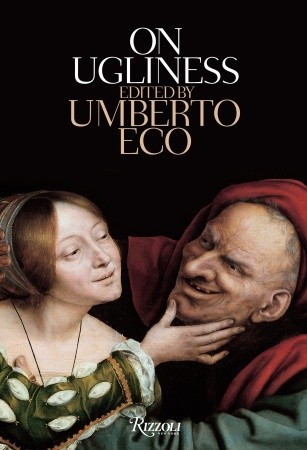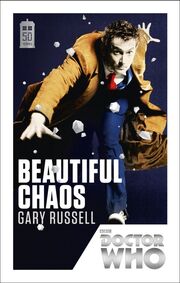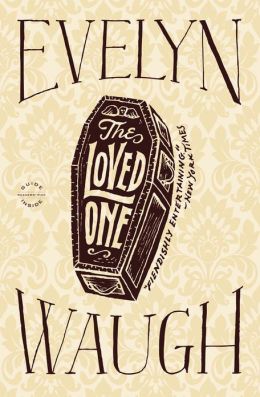 Killinger, who believed the bank should be the best at any business line it entered, now wanted Washington Mutual to become the biggest mortgage lender nationwide.
The Lost Bank
Killinger, who believed the bank should be the best at any business line it entered, now wanted Washington Mutual to become the biggest mortgage lender nationwide.
The Lost Bank tells the fascinating, almost morbid, story of the rise and fall of Washington Mutual, which was a major factor in the proliferation of subprime mortgages in the 2000s and the recent economic collapse. In a lot of ways it was somewhat of a prequel to Michael Lewis's
The Big Short, which told the story of how investment banks screwed themselves by ravenously gobbling up mortgage backed securities. In
The Lost Bank, we find out how those mortgage backed securities came to exist in the first place.
Washington Mutual barely survived the savings and loan crisis in the 80s, but made it through. At that point it was a smallish bank, operating only in Washington state, that mostly held people's deposits and made 30 year, fixed rate mortgages. The book paints a very rosy picture of WaMu during this period, and the bank was moderately successful by focusing on customer service, community involvement, and fostering a friendly, family atmosphere. CEO Lou Pepper was largely responsible for this success, in part because he put together a good team of executives who were well suited for running a bank of WaMu's size. (Feminism note: Pepper and WaMu were ahead of their time in the 80s and 90s in terms of hiring and promoting female executives). However, regulations that restricted banks' ability to operate in several states loosened about the time that Kerry Killinger took over as CEO, and the bank started down its path toward ruin.
As indicated by the quote above, Killinger conflated "biggest" with "best" and instituted a strategy of acquire, acquire, acquire. WaMu gobbled up bank after bank, including Long Beach Mortgage. At this point subprime mortgages were becoming to come en vogue, and Long Beach was the biggest purveyor. After this acquisition, WaMu saw how profitable subprime mortgages could be (because the borrower has worse credit, the bank could charge higher interest rates. Assuming the borrowers had worse, but not terrible, credit and the loans still got paid off, the bank would make more money). This trend dovetailed nicely with the rise of mortgage backed securities and allowed WaMu/Long Beach to churn out these subprime mortgages, package them together as securities, and sell them to investment banks. As long as the loans didn't default en masse, this practice removed the risk of the default of any particular loan from WaMu. As you can imagine, these factors lead to some unsavory incentives, and WaMu salespeople began lowering their standards or completely ignoring them, offering loans with no documentation of income or other proof of crucial information. Yet, investment banks continued to buy the increasingly risky portfolios of loans (with an assist from ratings agencies, like Moody's, who were grossly negligent and continued to rate the securities highly) and WaMu (and other companies, like Countrywide Mortgage) continued to churn them out. From the book: "Long Beach account executives weren't stupid. Many of them knew they were making loans that borrowers had almost no chance of paying back. 'I wouldn't lend some of these people money to buy a bicycle, nevermind a house,' said one account executive....And out there was this vague notion of Wall Street, and Wall Street wanted to buy these loans. 'I thought they must know something I didn't,' said the account executive. 'The all have MBAs and PhDs, and I just thought there was some variable that I didn't get.'" Of course, the point of
The Big Short was that no, they didn't know something that the account executive didn't. They had no idea what they were doing.
WaMu also started offering Option ARMs (adjustable rate mortgage), which were a particularly impressive bit of sorcery (or, as one WaMu employee said, were just plain evil). Option ARMs would start the borrower off with a crazy low interest rate, like 1%, which would recalibrate after three or four years. The borrower would have three payment options each month: they could pay off part of the interest and part of the principle, which is how most mortgages work, they could pay off just the interest, or they could pay a third, lower, amount. If they paid the lower amount, the difference between the interest only payment and their payment would be added to the principal of the loan, giving them more to pay off in the long run. As long as home prices continued to rise, the borrower could refinance their loan before the interest rate recalibrated and avoid a huge increase in monthly payment, which would sometimes be thousands of dollars more. These mortgages were hard for borrowers to understand, though, and salespeople didn't have a lot of incentive to fully explain them (if they understood them themselves), especially because they got much higher commissions for selling Option ARMs than fixed rate or even subprime mortgages.
Through the magic of accounting, when borrowers paid the low rate and the balance increased their principal, the bank could count the increase as earnings! WaMu "earned" billions this way; everyone was getting rich, millions of people who had no business doing so "owned" their own homes, and they were all doomed. For a number of reasons, house prices stopped rising and started falling, which led to defaults and people owing more on their homes than they were worth, which just depressed house prices further. As a result, tons of WaMu's assets became worthless and they had to buy back a number of the MSBs they sold to investment bankers (thought not enough that a bunch of investment banks, like Lehman and Bear, didn't also go under or get bought for pennies). In the end the FDIC took over WaMu and sold it to JP Morgan for a fraction of what it had been worth only a few years before, wiping out all of the shareholder value. Thousands lost oodles of money and thousands lost their jobs. It was a disaster.
The book spends a lot of time talking about the clusterfuck of the rivalry between the Office of Thrift Supervision, WaMu's primary regulator, and the FDIC, which was also interesting, and the question of whether the FDIC stepped in too soon to close down WaMu. But in the end, WaMu was doomed anyway, there was no way they were going to be able to recover, so it didn't really matter, and it seems like the FDIC did what it had to do (and didn't end up using any taxpayer money to cover any of WaMu's deposits, which is definitely a victory).
There were a lot of interconnected things going on in this book and, despite how lengthy this post is, there is a bunch I didn't touch on. Grind did a great job of making the subject matter easy to understand and compelling to read. I recommend
The Lost Bank to anyone who wants to learn more about why the economy collapsed and about how banks make home loans.















